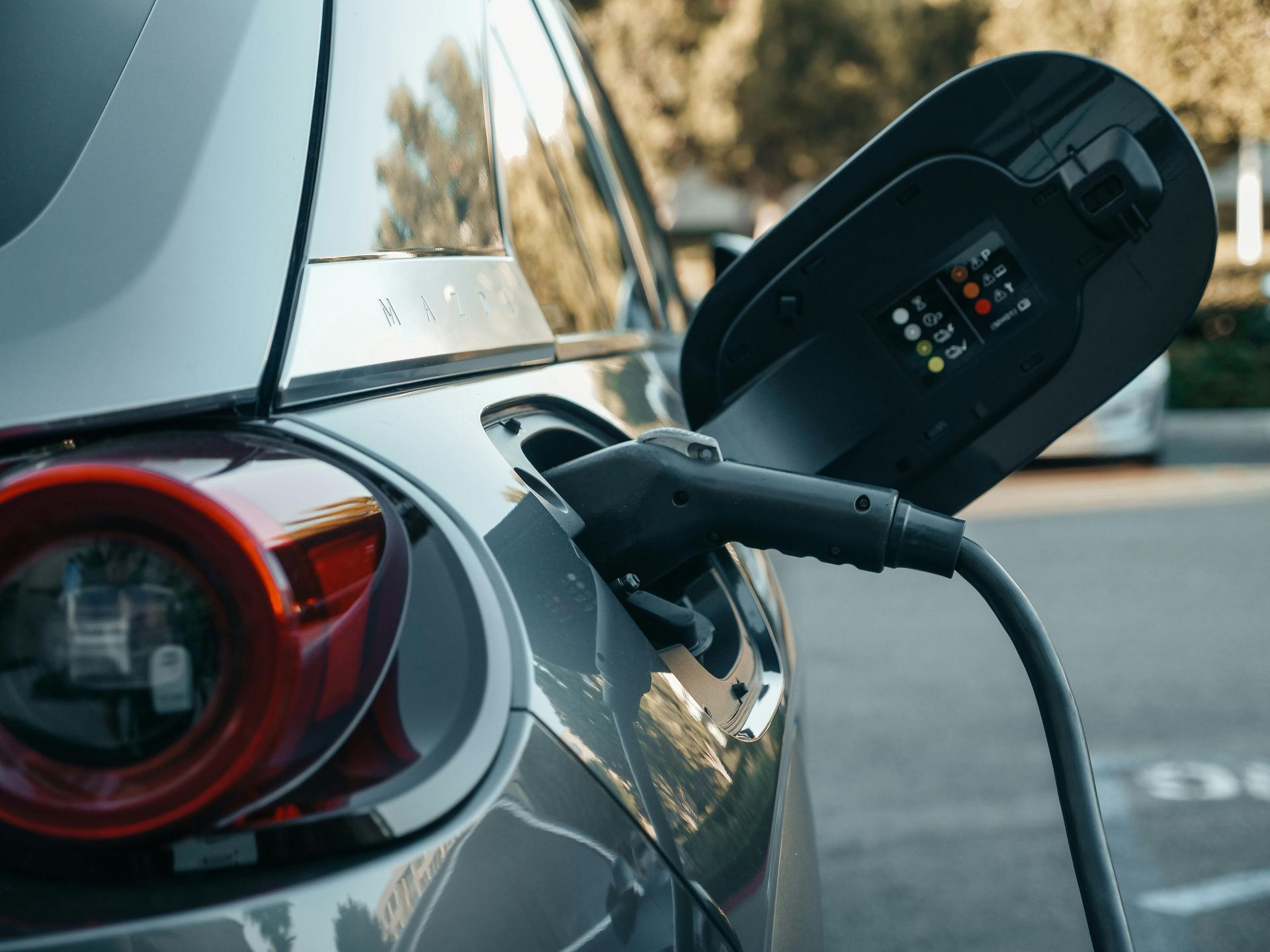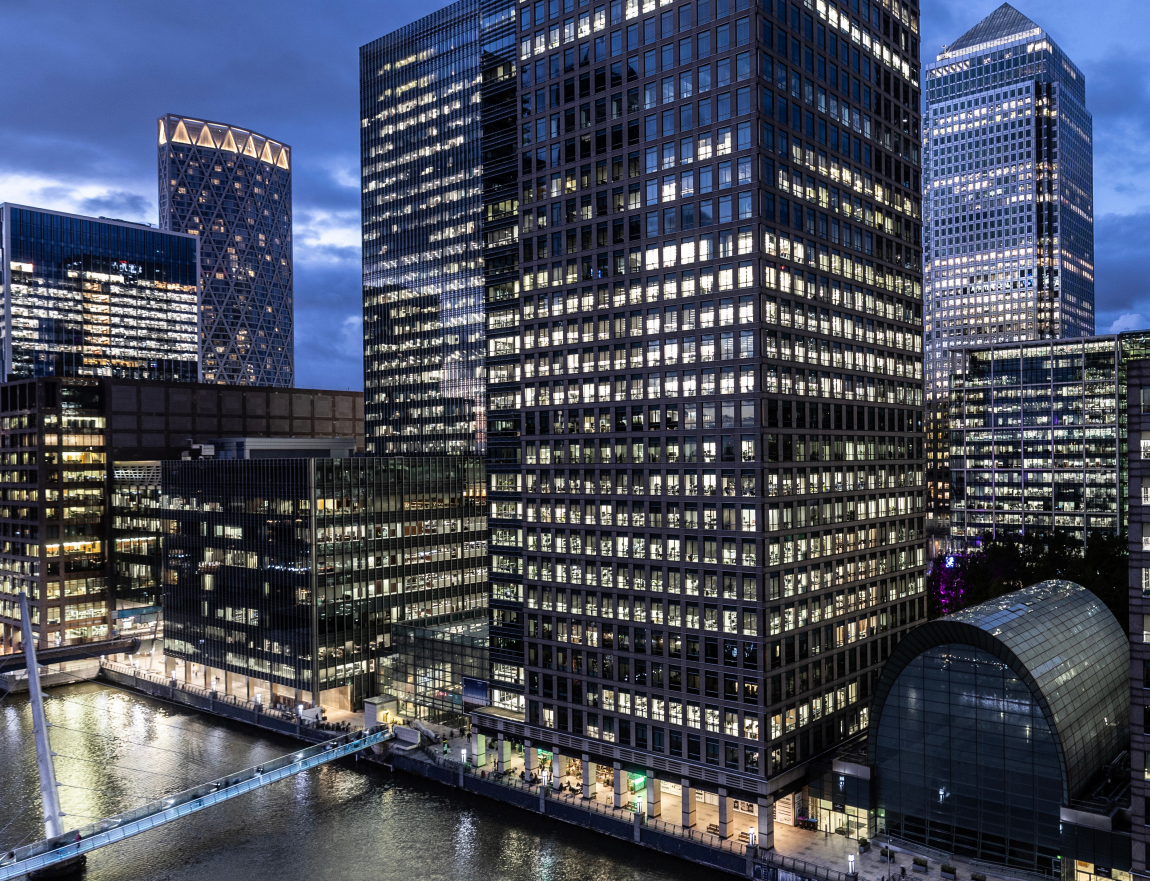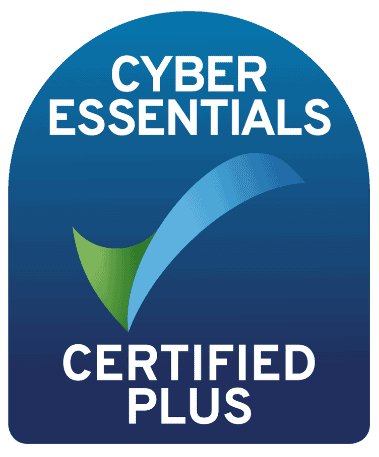ARTICLES
Even as wholesale electricity prices stabilise, a new wave of cost pressure is hitting UK businesses, and it is not coming from the energy market itself. Over half of a typical business’ electricity bill now comes from non-commodity charges; these sources include the grid, balancing, policy, and standing costs that fund the UK’s transition to a net-zero energy system. These charges are rising sharply as the country races to reinforce an aging network, integrate renewables, and finance new nuclear capacity. At a recent UK Energy Select Committee session (October 2025), EDF’s CEO Simone Rossi warned MPs that “business electricity bills could rise by 20% over the next four years, even if wholesale prices were cut in half.” In other words: even if markets calm, your costs won’t. In this Insight Article, we will explain why non-commodity costs are now the biggest driver of business electricity spend; what to expect over the next decade; and, most importantly, how your organisation can prepare, mitigate, and even turn these trends into strategic advantage. The New Cost Reality: Where the Increases are Coming From Non-commodity costs (the portion of your bill that is not the electricity itself) include transmission and distribution network charges (TNUoS, DUoS), balancing and system costs (BSUoS), and policy levies such as Contracts for Difference (CfD) of the new nuclear RAB levy. Each of these costs is rising for different reasons (largely due to continued under-investment by successive UK governments over the past three decades) but together they form a powerful incline. Transmission (TNUoS): The Big Jump Starts 2025 Network investment to reinforce the grid is driving a near-doubling of fixed residual transmission charges, from £3.8bn in 2025/26 to around £7.5bn in 2026/27. These costs are passed on as fixed standing charges, which will vary by region. For multi-site operators, regional differentials could become material line-items in budgets. Balancing & System Costs (BSUoS): The Renewables Paradox With more renewable generation and a still-constrained grid, balancing costs keep climbing. Even as low-carbon energy expands, system flexibility lags behind, meaning higher costs for managing intermittency. Until storage, demand response, and grid reinforcements catch up, BSUoS will remain volatile and elevated. Distribution (DUoS): Rising with Electrification Distribution costs are increasing as networks upgrade for EVs, heat pumps, and industrial electrification. The trend is toward more fixed and capacity-based recovery rather than pure per-kWh charges, shifting cost exposure toward your site configuration and load profile. Policy Levies: New & Persistent Nuclear RAB Levy: Starting in late 2025, to fund new nuclear generation capacity at Sizewell C, the Nuclear RAB Levy will add a new cost line for all consumers. Contracts for Difference (CfD): This works counter-cyclically – when wholesale prices drop, supplier payments rise. Legacy Schemes (RO, FiT): This will continue to weigh on bills for non-EII (Energy Intensive Industries) customers (those not exempt as Energy-Intensive Industries). Standing Charges: The Silent Budget Killer Many large businesses now face daily standing charge increases of £30 or more per site. Because these are fixed costs, even highly efficient or low-usage sites will see higher total bills. “Large energy users in Britain are set to face a sharp rise in non-commodity costs – adding up to £450,000 to annual bills.” (Energy Advice Hub, 24 September 2025) The key takeaway from this: energy efficiency alone will no longer guarantee lower bills. Why This Matters for Budgets and Procurement Even if your kWh consumption falls, your electricity spending may not. This is because the proportion is fixed and policy-linked costs are increasing, while variable commodity exposure is shrinking. For most corporate customers: Standard contracts won’t protect you: Non-commodity costs are typically ‘pass-through’, meaning that suppliers charge the full amount, without mark-up and without caps. Standing charges per site: This means that portfolio design now matters, and reducing the number of metered sites or rationalising MPANs could directly cut costs. Cost allocation is changing: More fixed/capacity components mean that your load profile, peak demand, and location matter more than total consumption. In summary, you can no longer treat non-commodity costs as a small add-on; they are now central to your cost-risk model. The 5-10 Year Outlook: What to Budget For Transmission Charges (TNUoS) Trend: Sharp increase through 2026-2030, possibly stabilising later. Budget Impact: Expect near-doubling of fixed charges by 2026/27. Model per-site costs and review regional variations. Action: Rationalise sites/meters where possible. Build future transmission uplifts into capital investment models. Balancing & Constraint Costs (BSUoS) Trend: Elevated and volatile through late 2020s. Budget Impact: Hard to forecast; risk of doubling under constrained grid conditions. Action: Stress-test budgets for BSUoS volatility. Invest in behind-the-meter storage, DSR participation, or flexible load management. Distribution (DUoS) Trend: Gradual but steady rise, with capacity-based recovery increasing. Budget Impact: High electrification zones face the largest uplifts. Action: Review your demand profile and capacity agreements. Engage DNOs early for expansions or new connections. Incorporate DUoS scenarios into financial planning. Policy Levies (CfD, RAB, RO, FiT) Trend: New levies (nuclear RAB) plus counter-cyclical CfD exposure. Budget Impact: More unpredictable costs when wholesale prices fall. Action: Include a new nuclear levy line from Q4 2025. Review exemption eligibility (EII or partial relief). Ensure supplier contracts clarify treatments of all levies. Standing and Fixed Charges Trend: Material increase across all non-domestic users. Budget Impact: Small or under-utilised sites become disproportionately expensive. Action: Review metering arrangements and site count. Explore aggregation or consolidation opportunities. Lock in or negotiate visibility on fixed charges before April 2026 reforms. The Political Landscape: What to Expect Political policy directly shapes the non-commodity cost-trajectory. With Labour in power until at least 2029, expect: Strong backing for grid expansion: The largest push for grid expansion since the 1960s, driving higher TNUoS, DUoS, and BSUoS. (Financial Times, 2025) New nuclear RAB levy introduction (Sizewell C): This has been confirmed for late 2025. (Reuters) Supplier requirement for lower standing charge tariffs by 2026: However, there is limited impact expected for commercial users. (Reuters) Rejection of zonal wholesale pricing: Instead, we will maintain national uniform pricing on fairness grounds. In summary, government investment and policy stability support decarbonisation, but also raise non-commodity costs for all consumers. What Businesses Should Do Now As non-commodity costs rise faster than energy prices fall, proactive action is essential. The following five steps can protect budgets, improve cost visibility, and strengthen your energy strategy. 1. Update Your Budget Models, Now Include explicit non-commodity line-items, not just unit price assumptions. Model scenarios such as: Standing charges increase of up to +20% Transmission cost uplifts approaching +90% from 2026 Policy levy uplift if wholesale prices halve Build these into 5-10 year energy and sustainability budgets, especially if your next contract ends beyond 2026. 2. Review Procurement Structures Most supply contracts pass through non-commodity charges without limits or caps. Check whether your contract treats non-commodity costs as pass-through or fixed. Request transparent breakdowns of TNUoS, DUoS, BSUoS, and levy components. For renewals due in 2026 and beyond, consider early tendering before major uplifts. Where possible, explore supplier options offering caps or collars on non-commodity exposure. 3. Rationalise Your Metering and Site Portfolio Every MPAN carries a standing charge – which are on the increase. Review site counts and identify opportunities for consolidation or aggregation. Assess whether smaller or seasonal sites justify their metering costs. Align portfolio design with operational strategy to avoid paying for under-utilised capacity. 4. Leverage Operational Flexibility Turn flexibility into a financial asset: Shift loads away from peak periods. Integrate energy storage or participate in Demand Site Response (DSR) programs. Deploy behind-the-meter storage or generation to buffer against volatility. Integrate non-commodity exposure into all new EV, heat pump, or electrification projects. 5. Check Exemptions and Embedded Opportunities If your business is classed as an Energy-Intensive Industry (EII) or a major exporter, explore levy reliefs and exemptions. Even non-EII companies can capture value through: On-site generation or storage participation. Embedded benefits and local grid services revenue. Supplier-linked optimisation programs. Aligning Cost Management with Sustainability Strategy Rising non-commodity costs are not just a financial challenge, they are also a sustainability signal. Grid and policy charges are increasing because of the UK’s transition to a net zero energy system; building new transmission lines, integrating renewables, and funding nuclear capacity all support decarbonisation. So, rather than treating these as ‘unavoidable penalties’, businesses can view them as part of the cost of progress and respond strategically. Aligning financial planning with sustainability can turn this pressure into advantage: Invest in self-generation: Invest in resources such as solar, wind, and CHP in order to reduce imported kWh exposure. Adopt flexible demand: Design strategies which earn grid services revenue. Engage in corporate PPAs: Utilise PPA which stabilise long-term energy and levy exposure. Report transparently: Transparent reporting on energy cost drivers in ESG disclosures demonstrates proactive risk management and alignment with net zero transition. Those who benefit the most here will be those who leverage flexibility, technology, and foresight in order to manage these non-commodity costs, not just absorb them. Final Word: The New Normal for Business Energy Non-commodity electricity costs are no longer background noise, they are the main story. Over the next decade, they will determine whether your site, process, or product line remains economically competitive. Key trends to remember are: Transmission and distribution costs are set to rise sharply from 2026. Balancing and constraint charges remain volatile. New levies, like the nuclear RAB, add structural costs. Standing charges keep climbing, even if you cut consumption. Political commitment to grid expansion means costs will stay elevated through at least 2023. It is essential to act now . Model and budget for uplifts, renegotiate contracts with transparency, invest in flexibility, and align sustainability with cost management. Adapting fast doesn’t just ensure resilience against the next energy cost wave, it also allows you to turn it into a competitive advantage. At edenseven, we recognise the genuine concern across all sectors of the market relating to the significant increase in electrical non-commodity charges. We are here to support your business to model these charge increases, support forward budgeting, and develop mitigation strategies based on your specific situation. Please get in contact with us at edenseven.co.uk or any of our team if you need support. Contact edenseven: phone: +44 1223 750335 email: info@edenseven.co.uk

Why the Natural World Belongs in Every Sustainability Strategy Nature means something different to everyone. For some, it is a dog-walk through the park; for others, it is hiking misty mountains in Scotland, swimming in turquoise waters, or exploring tropical forests in Costa Rica. Whatever image comes to mind, the truth remains the same: we all depend on nature for a sense of clarity, consistency, and stability. Nature provides us with clean air, fresh water, food, and moments of calm in an increasingly busy world. Its positive impact on our mental health is well documented; yet, while most of us recognise its value, we often struggle to understand how to support it, or how to bring more of it into our daily lives. Rediscovering Nature During the Pandemic Despite, and perhaps because of, their emphasis on isolation, the COVID-19 lockdowns reminded many of us just how vital being outside and being around nature are. That single hour of permitted outdoor exercise became a lifeline, a way to unwind, reset, and reconnect with others and ourselves. A 2023 report by Jonathan Kingsley et al. found that gardening played a key role in moderating stress and improving mood during the pandemic. Those with access to a garden reported significantly higher life satisfaction and mental wellbeing than those without. This experience underlined a powerful truth: access to nature should not be a luxury, it is essential for human health and happiness. The State of Nature in the UK When we think of nature in the UK, we might picture rolling countryside, rivers, and ancient forests. But beneath that green surface lies a concerning reality: the UK is one of the most nature-depleted countries on Earth (according to the UN). Ancient woodland, i.e. forests that have existed since pre-1600AD in England and Wales (1750AD in Scotland), now make up just 2.5% of the UK’s land area. These woodlands host incredibly diverse ecosystems in which plants, animals, and microorganisms coexist in balance. When disrupted, through deforestation, culling, or chemical use, these systems become fragile and fragmented. Monoculture such as dense pine plantations, for example, may appear lush but support only a fraction of the biodiversity found in ancient woodland, leaving them vulnerable to disease and collapse. The UK once hosted brown bears, wolves, lynx, moose, and beavers. While some, like the beaver, are being cautiously reintroduced, broader rewilding debates continue. What united both sides, however, is a shared recognition of the urgent need to protect and restore nature in the UK. One major policy proposal aiming to do just that is the Climate and Nature Bill (CAN Bill), a landmark piece of UK legislation designed to tackle both the climate crisis and the nature crisis together. The Bill calls on the Government to: The Bill calls on the government to: Set legally binding targets to reduce the UK’s greenhouse gas emissions in line with the latest science (limit warming to 1.5°C). Restore nature , halting and reversing UK biodiversity loss by 2030, by setting and implementing a legally-binding roadmap. Involving the public , through a Climate and Nature Assembly that ensures public participation in shaping solutions. The proposed CAN Bill is gaining widespread support from the public and over 1,500 organisations, seeking to tackle this crisis head-on, aligning efforts to address both the climate and biodiversity emergencies. A Global Challenge The challenge extends far beyond the UK. The UN warns that over one million species worldwide are now at risk of extinction due to human activity. This loss doesn’t just affect wildlife and being able to show future generations elephants and rhinos, it threatens the very systems that sustain us: our food, water, and health. Over the past 150 years, land use has changed dramatically. With the global population more than quadrupling, human activity now dominates 75% of the planet’s usable land. The regenerative capacity of Earth’s ecosystems is in rapid decline. If we are to secure our future, regenerating the natural world is no longer optional; it is essential. Why Nature Belongs in Corporate Sustainability Despite its fundamental role, nature remains one of the most overlooked elements in corporate sustainability strategies, with the focus of many of these relating to another important aspect: greenhouse gas emissions. While this is a great start, and a fundamental issue, it must be combined with a nature strategy to ensure both the climate and biodiversity crises are tackled together. While frameworks like the Taskforce on Nature-related Financial Disclosures (TNFD) and the Science Based Targets Network (SBTN), nature-based target pilot schemes, have begun to offer guidance, many organisations still lack direction. As a result, we’re seeing a growing voluntary market for corporate nature investment, from tree planting and habitat restoration to animal welfare initiatives. Yet these efforts remain fragmented and underpowered relative to the scale of the challenge. The UK Government’s Nature Recovery Network (NRN) aims to change this by moving from protection to restoration. Its goals include but are not limited to: Protecting and managing 30% of England’s land and sea for nature by 2030 Halting species decline by 2030 and increasing species abundance by at least 10%, to exceed 2022 levels by 2042 Restoring or creating 500,000 hectares of wildlife-rich habitat outside protected sites by 2042 Improving 75% of protected sites to favourable condition by 2042 Increasing tree canopy cover to 16.5% by 2050 Improving access to nature, working across government to ensure that everyone lives within 15 minutes’ walk of a green or blue space These efforts are directly linked to achieving net zero by 2050, improving air quality, and supporting public wellbeing, outcomes that businesses can and should help accelerate. The Business Case for Nature Investing in nature isn’t just good ethics; it’s good business. Productivity and wellbeing: Studies show that employees with access to green spaces are happier, healthier, and more productive. Even having indoor plants or a green view can reduce stress, improve focus, and lower absenteeism. Customer and employee loyalty: Millennials and Gen Z, now the largest segments of the workforce and consumer base, increasingly expect companies to demonstrate environmental responsibility. Businesses wanting to attract and retain talent must act. Innovation and risk management: Nature-positive strategies often drive innovation, improve resilience, and ensure long-term regulatory compliance. Brand reputation and access to capital: Investors and consumers alike are rewarding businesses that take meaningful action on biodiversity. In short, what’s good for nature is good for business, and essential for long-term resilience. From Biodiversity Net Gain to Business Transformation Certain sectors are already leading the way. In construction, the concept of Biodiversity Net Gain (BNG) ensures that new developments deliver measurable improvements in biodiversity compared to pre-development levels. Through features such as green roofs, community gardens, wildlife corridors, and sustainable drainage systems, developers are proving that commercial success and ecological restoration can go hand in hand. A great example is Coutts Bank in Central London, which has transformed its rooftop into a thriving urban garden. The space now produces an impressive variety of fruits and vegetables, including wasabi, Sichuan peppers, iceberg lettuce, guavas, berries, and even honey from on-site beehives. This initiative highlights how even the most densely built urban environments can integrate green infrastructure, enhancing biodiversity, improving air quality, and contributing to local food resilience and community wellbeing. The question now is: how do we extend this mindset across all industries? By embedding nature into corporate strategies, from supply chains to employee wellbeing, businesses can help regenerate ecosystems while building stronger, more sustainable organisations. A Call to Action Nature is not an externality or something that can remain as a nice-to-have; it is the foundation of our economy, our health, and our future. By embracing nature as a core component of sustainability strategy, UK businesses can play a pivotal role in restoring biodiversity, supporting the Nature Recovery Network, and building a more resilient future for all. Reflecting on World Mental Health Day last month, there’s no better time than now to take action, to integrate nature not only within our businesses but also into our daily lives. With autumn upon us, why not set aside a moment this week to step outside and truly reconnect with the natural world? Notice the vibrant colours of the turning leaves, listen to the gentle rustle as they fall, feel the cool breeze on your skin, and breathe in the rich, earthy scent of the damp ground. Be present in that moment, and you’ll soon feel the restorative power that nature so freely offers. If you’d like to help drive systemic change, write to your local MP to support the Climate and Nature Bill, and learn more at www.zerohour.uk. Parliament is next scheduled to discuss the CAN Bill on Friday 29th May 2026. It's Time for Businesses to Lead When developing or reviewing your ESG or sustainability strategy, supporting nature restoration and stewardship must be part of the plan. Nature underpins environmental performance, enhances social value through community engagement, and improves staff health and wellbeing, all of which are core pillars of a credible and future-proof ESG strategy. At edenseven, we support organisations in integrating nature into their strategy in meaningful, measurable ways, from nature-positive initiatives and biodiversity planning to partnering with local community groups and improving employee wellbeing through access to green spaces. Want to learn how to integrate nature into your business, be part of the change, and reap the benefits discussed above? Get in touch with edenseven today, and let’s build a future where business and nature thrive together. Contact edenseven: phone: +44 1223 750335 email: info@edenseven.co.uk

Scene Setting: A world on fire, a business community looking away In the wake of stark warnings from the Intergovernmental Panel on Climate Change (IPCC), the imperative for global nations and the businesses that operate within them to expedite climate action has never been more urgent. Yet, 2024 offered a sobering backdrop. More than 60 countries went to the polls, including major players like the US, UK, India, South Africa, Pakistan, and Russia, but climate concerns scarcely featured in manifestos. Global temperatures soared, making 2024 the hottest year on record, breaching the Paris Agreement’s critical 1.5°C threshold with an average global rise of 1.6°C. Instead of urgency, we saw political backtracking on commitments and rising public scepticism, as nationalist politics across the US, UK, and Europe reshaped climate discourse. The second Trump Administration has already reversed U.S. environmental policies put in place by the Biden Administration, Russia’s approach was deemed “critically insufficient” by the Climate Action Tracker, and developing nations like India and Pakistan are prioritising growth over emissions reduction. Against this political backdrop, businesses are increasingly echoing the same short-termism. Today in 2025, the focus has shifted toward low-value investments, short-term paybacks and high percentage RoIs, rather than the long-term investments required to align with net zero. The reality is clear: governments and businesses alike are kicking the climate can down the road at the very moment when decisive action is most needed. In our experience, this is a big mistake. Taking a long-term view on sustainability and particularly on decarbonisation offers significant long-term benefits for organisations, increases asset and company valuation and supports growth. The Rise of Short-Term Thinking in Business Business leaders have long understood that shareholder expectations and competitive pressures drive decision-making. However, what we are now seeing is a dangerous narrowing of focus. Instead of aligning investment and strategy with the multi-decade challenge of decarbonisation, many firms are prioritising projects with immediate financial returns, often within a 2-3 year window. This shift is particularly troubling because: The carbon reporting landscape is becoming more complex. Regulations such as the EU’s Corporate Sustainability Reporting Directive (CSRD), the UK’s Transition Plan Taskforce (TPT) framework, and the growing alignment with the International Sustainability Standards Board (ISSB) are forcing businesses to measure and disclose with greater transparency. Yet, disclosure does not equal action. The window for effective transition is closing. Science shows that emissions must peak before 2030 and fall by nearly half by 2035 to stand a chance of limiting warming. A short-term financial focus is incompatible with this timeline. Competitive positioning is at risk. While some businesses see sustainability as an “extra cost,” those that fail to transition risk stranded assets, supply chain disruption and reputational decline as customers and investors demand evidence of resilience. The Shift Away from Net Zero: Sentiment vs. Reality Across boardrooms in 2025, there is a noticeable cooling of enthusiasm toward net zero. Where once CEOs boasted about ambitious targets, today there is a recalibration, or in some cases, a retreat. Several factors underpin this shift: Economic volatility. Inflationary pressures, higher interest rates, national insurance increases and supply chain disruptions have led many firms to re-evaluate capital deployment. Long-term sustainability projects are being deferred in favour of “business continuity”. Investor pressure for short-term returns. Despite growing ESG funds and sustainable finance frameworks, mainstream investors remain focused on quarterly earnings. Executives are rewarded for near-term profit, not 2040 climate goals. Perceived political cover. With governments themselves slowing climate ambition, businesses feel less exposed when reducing or delaying their own commitments. This sentiment shift is dangerous. Net zero is not a PR exercise but a structural economic transition. Those companies stepping back today risk not only missing climate targets but also creating vulnerabilities within their operations and missing out on significant financial benefits. The Inadequacies of Short-Term Planning 1. Misaligned Investment Horizons Sustainability, by its very nature, requires investments that yield benefits over decades. Renewable energy infrastructure, enhanced electrical supply infrastructure, electrification of fleets, electrification of heat, circular economy design, or large-scale efficiency retrofits often require 7–15 years to fully deliver ROI. A focus on 2-3 year payback periods screens out precisely the projects needed to build resilience and future profitability. 2. Greenwashing Over Governance Short-termism often leads to “optics over outcomes.” Companies spend on branding, marginal improvements, or low-cost offsets instead of transforming business models. This erodes trust among investors, employees, and consumers alike. 3. Regulatory Lag Becomes Risk Exposure The complexity of carbon reporting and disclosure requirements is accelerating, not slowing. Businesses that fail to prepare for robust compliance regimes will face mounting costs, penalties, and reputational damage. 4. Failure to Secure Financing Sustainable finance is evolving. Lenders and investors increasingly evaluate climate transition plans and exposure to transition risks as part of their risk models. Companies unable to demonstrate credible long-term planning will face higher financing costs or lose access to capital entirely. The Case for Long-Term Sustainable Investment Insight from investment research consistently shows that sustainability and profitability are not mutually exclusive. In fact: Firms with strong ESG performance often deliver higher risk-adjusted returns. Studies by MSCI and Morningstar suggest ESG-aligned portfolios have outperformed benchmarks over the past decade . Company Valuation. Investing in on-site technology and infrastructure that will support carbon reduction and energy efficiency will increase asset values which in turn will support valuation multiples. Resilience pays. Companies that invested early in renewable energy and efficiency are now benefiting from reduced exposure to volatile fossil fuel prices. Investor sentiment is shifting. Even though short-term profit dominates headlines, global frameworks such as the UN COP26 initiated Glasgow Financial Alliance for Net Zero (GFANZ) are embedding climate criteria into long-term capital allocation. The lesson is clear: businesses that look beyond the immediate payback horizon will be better positioned to attract capital, manage risk, and capture growth opportunities. What Businesses Need to do to Reframe Their Approach To break away from short-termism, businesses need to embrace three core principles: 1. Transition Planning as Strategy Carbon disclosures should not be viewed as a box-ticking exercise. Instead, businesses should integrate them into strategic planning, aligning investment horizons, operational transformation and risk management around a clear net zero pathway. 2. Investment Criteria Must Evolve Payback periods need to be redefined. Businesses should apply broader lenses, incorporating avoided carbon costs, resilience benefits, brand equity, and future financing conditions. A total value return approach, not just a financial one. 3. Align Incentives with Long-Term Outcomes Boards and investors should tie executive compensation not just to annual returns but to delivery against long-term climate and sustainability targets. The edenseven View: From Short-Term Gains to Lasting Value At its heart, the danger of short-termism is not just the failure to reduce emissions; it is the erosion of business competitiveness, resilience, and relevance. The narrative of “we cannot afford sustainability” is inverted. In reality, businesses cannot afford inaction. Our advice is clear: Set credible financial and environmental targets align ed with net zero. Reframe investment decisions with a long-term lens that includes financial, environmental, and reputational dimensions. Engage proactively with regulators and stakeholders to shape and anticipate compliance requirements. Embed sustainability into corporate culture, governance, an d reporting. Ensure that your data capture and reporting processes are robust, consistent, compliant and assured. By doing so, companies move beyond compliance and optics into a position of leadership, attracting capital, customers, and talent while securing long-term viability Conclusion: A Call to Leadership The world in 2025 is defined by contradiction. On one hand, the climate crisis accelerates, with record-breaking temperatures and increasingly complex carbon reporting frameworks. On the other hand, business sentiment retreats, focusing narrowly on short-term paybacks. This is unsustainable. Businesses that prioritise immediate returns over long-term resilience are missing an opportunity for long-term growth. By contrast, those that embrace sustainable investment as a core strategy will not only meet compliance requirements but also unlock profitable growth, resilience, and trust. Kicking the climate can down the road only makes the future more expensive and challenging for businesses, investors, and society alike. The choice is clear: chase shadows in pursuit of short-term gains, or invest in the foundations of lasting value . Whilst writing this insight article, I am reminded of a Greek Proverb: ‘A society grows great when old men plant trees whose shade they know they shall never sit in.’ If you are working in a sustainability role or hold a senior role within an organisation, and the topic of this insight article resonates with you, please come and talk to us at edenseven . We are a business of practical thinking individuals who have real life experience of working in and running businesses. We understand the pressures of hitting short-term targets, but also the huge benefits a well-structured decarbonisation strategy can have on a business. If you want to talk more, please give one of our team a call. Contact edenseven: phone: +44 1223 750335 email: info@edenseven.co.uk

In today's rapidly evolving business landscape, Environmental, Social, and Governance (ESG) factors have moved from niche considerations to critical drivers of long-term value, investor confidence, and societal impact. Companies are increasingly recognising the imperative to address their environmental footprint, foster positive social contributions, and uphold robust governance standards. However, despite this growing awareness and investment, a significant hurdle remains for many organisations: the common misconception that ESG can simply be an add-on . Too often, we see ESG treated as a separate department, a compliance checklist, or merely a side project tacked onto existing operations. This "bolt-on" approach , while seemingly an easy entry point, is a primary reason why even well-intentioned ESG initiatives ultimately fail to deliver meaningful, transformative impact. When ESG isn't woven into the very fabric of a company's strategy, culture, and decision-making processes, it becomes just another isolated function, lacking the power and resources to drive real change and unlock genuine value. This article will delve into why this approach falls short and, more importantly, outline how a strategic, integrated approach to ESG can lead to tangible business outcomes and sustainable growth. The Challenge "We have a sustainability team of 3 people trying to transform a company of 10,000." This candid observation highlights the fundamental flaw in many organisations' approach to ESG. When ESG is treated as an isolated function, disconnected from the core business, it struggles to gain traction and deliver real transformation. Uncovering the Shortcomings of This Approach ESG treated as a separate function rather than core business strategy Sustainability goals disconnected from business objectives and KPIs Executive teams struggle to weave ESG into existing strategic planning processes ESG initiatives compete against business priorities instead of enabling them Lack of integration creates silos and limits transformation impact Solution Framework: Making ESG a Strategic Enabler What's The Solution? To move beyond the bolt-on approach, ESG must be strategically integrated into every facet of the business. This shift transforms ESG from a compliance burden into a powerful driver of competitive advantage and sustainable growth. This means businesses need to: Embed ESG considerations into annual strategic planning and budget cycles Align ESG materiality assessments with business risk and opportunity mapping Integrate sustainability metrics into core business dashboards and board reporting Make ESG performance criteria part of business unit strategy reviews Connect ESG goals to market expansion, operational efficiency, and innovation pipelines Train leadership teams on ESG as competitive advantage, not a compliance burden How edenseven Helps: Enabling Integrated ESG Strategies Are your ESG efforts feeling disconnected and underperforming? edenseven closes the gap between ambition and execution. We combine deep technology understanding with real-world market experience to empower companies to not just meet climate goals, but to achieve sustainable, profitable growth . We design bespoke, data-driven sustainability strategies that are fully integrated into your core business, turning ESG into a powerful strategic enabler that unlocks new opportunities and mitigates risk, rather than a costly, isolated add-on. If you would like to find out more about how we can deliver powerful ESG strategies for your organisation, send us a message today!

As energy prices climb, staff costs rise, and local authority budgets tighten, leisure centres across the UK are navigating choppy waters. Nowhere is this pressure felt more acutely than in facilities with swimming pools. These highly valued public assets are also among the most energy-intensive parts of any leisure operation, with heating, ventilation, water treatment, pumps and lighting systems operating almost constantly. According to a Lords report, between 2021 and 2024, 77 local authority managed leisure centres across the UK closed, many citing increases in utility costs as a contributing factor. In 2023, a medium sized operator of public leisure centres announced that it's utility costs had increased from £8m in 2021 to an estimated £24m in 2024. Yet, despite these pressures, swimming pools remain a vital part of the health and wellbeing infrastructure in our communities. The challenge is to safeguard their future by reducing operational costs and environmental impact while maintaining, or ideally improving, comfort and safety for bathers. This is where a focused, evidence-led approach to energy efficiency becomes not just a sustainability initiative, but a financial and operational necessity. Understanding the Challenges Operators of swimming pools in the public and private sectors are facing a perfect storm: Rising utility costs : Volatile energy markets and increasing wholesale prices mean that the cost of running a pool is often the single largest line item in an operator's budget. Ageing infrastructure : Many leisure centres were built decades ago, with plant and building fabric now well beyond their optimal design life. Staffing pressures : Increased employer National Insurance contributions, inflationary wage growth, and recruitment challenges in technical and operations roles strain budgets further. Local authority cuts : For council-run sites or those operated under local authority contracts, budget reductions mean less funding for capital improvements, making it harder to invest in long-term savings. In this environment, energy efficiency isn't just about sustainability; it is core to financial survival. Ten Focus Areas for Energy Efficiency in Swimming Pool Operations edenseven have worked with a wide range of leisure operators across the UK, from large national chains, local authority and privately run leisure centres and single-site independents. While every facility is unique, there are ten consistent focus areas that can help reduce costs and improve user experience. 1. Pool Hall Air Handling Systems Air handling units (AHUs) that serve the pool hall are often some of the most energy-intensive pieces of equipment in a leisure centre. Retrofitting systems with high-efficiency heat recovery, variable speed fans, and improved controls can yield significant savings. Maintaining optimal humidity and air temperature also reduces condensation and improves comfort and reduces building degradation. 2. Pool Water Heating and Temperature Management Upgrading boiler systems or integrating renewable sources such as heat pumps can drastically reduce energy usage. Modern controls, temperature stratification management, and insulation of pipework all contribute to system efficiency. Managing water temperatures to an optimal level reduces the need for backwashing. Higher pool water temperatures lead to increased microbiological growth and a higher need for backwashing and chemical dosing. 3. Lighting Efficiency LED lighting retrofits, particularly in pool halls and plant rooms, provide rapid returns on investment. Coupled with intelligent lighting controls (e.g., occupancy sensors in changing villages and toilets, and daylight dimming), this can lower costs while enhancing visibility and safety. 4. Building Fabric and Insulation Improved insulation of walls, roofs, and glazing can reduce heat loss, especially in pool halls where thermal demand is constant. Draught-proofing and maintenance of seals around windows and doors are low-cost measures that can have a noticeable impact. 5. Water Treatment System and Backwash Optimisation Advancements in filtration and chemical water treatment technologies, such as glass-media filtration and UV treatment, can reduce the need for chemical dosing and water changes. Smart controls help optimise chemical usage, water balance, and backwash schedules, lowering energy and water consumption. 6. Pool Covers and Evaporation Management Heat loss due to evaporation is one of the largest energy drains in any pool. High-quality, well-fitted pool covers can reduce overnight losses dramatically. Automatic covers also improve usability and safety. Consideration should be given to using surplus heat from other parts of the operation or other local businesses if possible - data centres or industrial processes could prove to be ideal partners. 7. Smart Controls and Building Management Systems (BMS) Many leisure centres are under-utilising their existing BMS or lack one altogether. Integrating systems and enabling real-time monitoring and automated control can unlock both energy and operational efficiencies. 8. Renewable and Low Carbon Technologies On-site solar PV, air or ground source heat pumps, and battery storage can help offset rising energy prices. While capital intensive, these measures may qualify for grant support or financing options that align with local authority decarbonisation plans. 9. Staff Training and Customer Engagement Empowering staff with energy awareness training and involving them in optimisation routines often leads to behavioural changes that enhance the impact of technical interventions. From plant operators to lifeguards, everyone has a role to play. Engaging with customers to shower before using the pool reduces biological loading and the need for chemicals and backwashing, saving water, energy and chemicals. 10. Data Monitoring and Continuous Improvement You can't manage what you don't measure. Installing sub-metering, using analytics platforms like cero.earth, and setting performance benchmarks allows leisure centre operators to track progress and target interventions more precisely. This data-led approach drives accountability and long-term success. Planning the Journey: From Audit to Action There is no one-size fits all solution, but there is a process. Most successful transformations start with a detailed energy and plant condition audit, tailored to the unique operational profile of the site. From here, a prioritised action plan can be developed, balancing short-term wins with longer-term investments. Understanding funding routes for public sector managed facilities is also critical. Many operators overlook opportunities for central government or local authority-backed capital funding. Our team has supported clients in identifying and securing funding through schemes such as the Public Sector Decarbonisation Scheme and local net-zero initiatives. Crucially, implementation must be done in a way that minimises disruption to operations and maintains health and safety standards. That means working closely with operational staff, technical teams, and supply chains. A Sustainable Future for Swimming At edenseven we believe that every leisure centre and swimming pool in the UK can be part of a more sustainable future, one where communities continue to benefit from the physical and mental wellbeing that swimming pools and leisure centre facilities offer, without shouldering unsustainable costs. Our role as a sustainability consultancy is not to offer off-the-shelf solutions, but to partner with clients to understand their context, build the right roadmap, and support delivery at every stage. From strategic advice and audits, through to technical specification and project management, our credibility is built on a track record of helping leisure operators navigate these exact challenges. If you are responsible for a facility that includes a swimming pool, now is the time to act, come and talk to us . Rising costs are unlikely to reverse themselves, but with the right expertise and a structured approach, they can be managed and even turned into opportunities to improve performance and bather comfort, engage with you customers and improve your leisure centre’s environmental impact.

Managing Partner, Pete Nisbet, explains more: Over 80% of consumers say they're willing to pay more for sustainable products. But here’s the catch: trust is fragile . Too many claims are vague, inconsistent, or unverifiable. And consumers are noticing. Greenwashing isn’t just a PR problem, it’s a business risk. Transparency and accountability are no longer optional. Credible data, third-party verification, and measurable outcomes are essential. They don’t just protect you, they future-proof your business. Because once trust is broken, it’s hard to rebuild. Over half of consumers say they’d stop buying from brands they believe mislead on sustainability. That’s not just reputational damage, it’s lost customers, investment, and talent. Why does this matter? For People: When companies walk the talk, people benefit through better working conditions, local job creation, and access to more ethical, healthier products. Trust builds loyalty. Transparent, credible action forges stronger relationships between businesses and the people they serve. For Profit: Sustainability isn’t a cost, it’s a growth strategy. Sustainable products grew 2.7x faster than conventional ones between 2015 & 2019. Over $30 trillion is now invested in ESG assets, and is expected to reach $40 trillion by 2030. For the Planet: The climate crisis is happening now. We need bold, credible action, not just pledges. Science-based targets, circular design, and effective net-zero strategies are essential. Turning Ambition into Action: At edenseven, we design, build, and implement sustainability strategies that deliver. We consistently see these benefits for the clients we work with: reducing costs, proving impact to customers and investors, and cutting regulatory risk. Most importantly, we help minimise your impact on the planet. If you want to see how much of an impact we can make for your business, send us a message! We’ll help you turn genuine sustainability efforts into clear, credible results that future-proof your business and resonate with your customers & key stakeholders.

On March 5th, 2025, Sustainability and FM Leaders captured the attention of Business Directors. By signing their Energy Savings Opportunity Scheme (ESOS) Action Plans, they collectively endorsed a strong business case with tangible opportunities to reduce energy consumption and costs, all in preparation for the reporting period ending on December 5th, 2027. Few businesses would dispute the benefits of focusing on energy efficiency. It not only reduces operational costs and enhances profitability but also contributes to decarbonisation efforts - an increasingly important factor for sustainability-conscious employees, customers, and shareholders. Time to Unlock Savings From Your List of ESOS Measures As part of Phase 3, approximately 11,900 UK businesses submitted their ESOS reports in August 2024. These were followed by the required Action Plans on March 5th, 2025. Moving forward, businesses must submit annual progress reports in the final Phase 4 assessment on the December 5th, 2027. The latest government guidance indicates that, instead of using the ESOS portal, companies subject to SECR may "report progress annually via the energy efficiency narrative section in SECR reports." (This flexibility depends on parliamentary time and scrutiny). Regardless of the method, demonstrating effective management of the Action Plan’s implementation is both a regulatory requirement and a best practice." A Business Case Approach to Prioritise Interventions edenseven's extensive experience in supporting customers with ESOS compliance has been overwhelmingly positive. Businesses were given the opportunity to tailor their energy-saving actions to align with their unique needs and strategies. Notably, ESOS guidance doesn't mandate a minimum number of Measures in the Action Plan. However, there is a hint of a reputational impact from September 2025, when the Environment Agency will publish action plans, including of companies that have not committed to any Measure. A well-structured action plan can significantly enhance a company's credibility. Businesses have the flexibility to choose energy-saving initiatives that align with their specific needs, considering factors such as budget, lifecycle assessments, estate strategy, and fleet procurement cycles. By thoughtfully balancing these considerations with broader sustainability goals, companies can achieve meaningful progress while maintaining financial and operational stability. Expertise and Tools to Make it Happen in Phase 4 With Phase 4 of ESOS now fully underway, meticulous planning and well-supported investment decisions are essential. Companies must build robust business cases that integrate technical, regulatory, and financial considerations. In response to this need, edenseven has advanced its cero.earth carbon accounting & management platform by introducing a dynamic Project Forecasting and Management module. Project Forecasting and Management Module cero.earth ’s project tools serve as a comprehensive database of all potential projects, enabling real-time impact analysis, including: Cost and savings projections CO2 emissions reductions Energy Use Intensity improvements These tools enable businesses to forecast the financial costs and benefits of their approved measures within an agreed timeframe. For example, a CFO can review scenario options that highlight the financial and environmental advantages of initiatives such as HVAC retrofitting, solar PV installation, or even building decommissioning. Monitoring Energy Performance for ESOS Requirement Together with SECR Reporting cero.earth is already configured to automatically generate Streamlined Energy and Carbon Reporting (SECR) reports. While the Environment Agency has outlined the content expectations for the December 2025 progress update, formatting requirements remain unspecified. edenseven remains agile in supporting customers with both insights and tools to streamline their reporting. Prepare for the Future with edenseven The transition to a more sustainable business model requires proactive planning and strategic execution. Get in touch today to learn how edenseven can support your journey towards compliance and sustainability excellence.

We’re delighted to continue collaborating with Paythru, supporting their commitment to sustainability through comprehensive ESG solutions. Our partnership includes edenseven's in-depth measurement and analysis of their Scope 1, 2, and 3 emissions, alongside strategic guidance to help them achieve their wider sustainability goals. Paythru, a UK-based technology company, specialises in cloud-based payment solutions for electric vehicle (EV) charging and parking. Their innovative platform simplifies the EV payment experience by decoupling the charging process from physical hardware, staying true to their philosophy: "Experience first. Technology second." As part of this ongoing partnership, Paythru is utilising cero.earth , carbon accounting and management platform, to accurately measure, track, and reduce their carbon footprint. ESG reporting goes beyond compliance - it drives real impact. By precisely measuring their environmental footprint, companies can set meaningful targets, monitor progress, and lead tangible change. We, at edenseven, are proud to support Paythru in demonstrating their ongoing commitment to sustainability and shaping a greener future for EV infrastructure.





